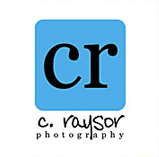By now, we've all heard about the potential dangers that exist from plastics containing BPA. This is an issue that I follow pretty closely and have gone to various different lengths in my home to eliminate it, especially in products for my children. Some new information has been released on this topic, and I found it very interesting and thought our Chester County Moms readers may too.
This information comes from the Healthy Child, Healthy World Blog.
Bisphenol-A has had its fair share of media coverage this year and things are definitely not quieting down. Just this week a scientific panel released a report charging that the FDA ignored valuable studies when it concluded last summer that BPA is a safe chemical. Many retailers and manufacturers have responded over the past year by voluntarily phasing out the suspect plastic. Despite these clear market signals, the manufacturers of BPA aren’t giving up without a fight. Here is the latest in this on-going chemical saga:
The Good
• Kudos to Canada for officially declaring BPA a toxic agent and banning the sale, import, and advertising of baby bottles containing BPA.
• Connecticut Attorney General Richard Blumenthal, along with the Attorneys General from New Jersey and Delaware, sent a letter to 11 baby bottle and formula container manufacturers asking them to voluntarily stop using BPA in their products.
• San Francisco Supervisor Michela Alioto-Pier wants stores in the city that sell baby bottles made with BPA to pull them from the shelves -- and Safeway already has agreed to do so across its grocery stores nationally. She will also be asking hospitals to discontinue their use of these products.
• The National Institutes of Health’s National Toxicology Program released a report on October 23rd reaffirming their 2007 findings that BPA does indeed pose a health concern. Now if they could only convince their FDA peers…
The Bad
In addition to the piles of studies that have already raised red flags, new research continues to demonstrate BPA’s potential ill effects.• The first study on humans showed a link between BPA and heart disease and diabetes.
• In tests on breast cancer cells, researchers from the University of Cincinnati found that BPA may protect cancer cells from dying off when they are exposed to anti-cancer drugs, reducing the effectiveness of chemotherapy.
• Based on a review of 261 scientific publications, the National Toxicology Program found that BPA may alter brain development and behavior, and increase the risk of prostate cancer in children, infants and fetuses.
The Ugly
The government agency that has the authority to protect us from this chemical, the US FDA, has declared BPA safe. Since they made this declaration, many have been asking why. Investigative reporters from the Milwaukee Journal Sentinel uncovered a dirty, little secret: the FDA report claiming that BPA is safe was written largely by the plastics industry and others with a financial stake in the controversial chemical.
The American Chemistry Council, the trade group representing chemical manufacturers, submitted their own (biased) review of BPA studies that the FDA used as the foundation for their evaluation. In addition, it recently came to light that the chair of the FDA subcommittee failed to disclose receiving a $5 million “gift” from a major BPA user. Science for sale, anyone? "This latest revelation makes clear that no matter who is in the White House come January, he has to rebuild the FDA," said Environmental Working Group (EWG) President Ken Cook. "An agency that once epitomized independent, impartial expertise in the service of public health has degenerated to a disgraced stenographer for the chemical and plastics industry."
Sign the petition supporting legislation (S. 2928, HR 6228) introduced this summer that bans BPA from all food and beverage products. The Consumer's Union has already gathered almost 18,000 signatures! Add yours now.
Subscribe to:
Post Comments (Atom)













1 comment:
Along the same lines...if you do have bottles that contain BPA in your home, I believe that your local Babies "R" Us is allowing you to exchange them for BPA free ones (I think you only have to pay the difference in price, if there is one)...something to check out!
Post a Comment